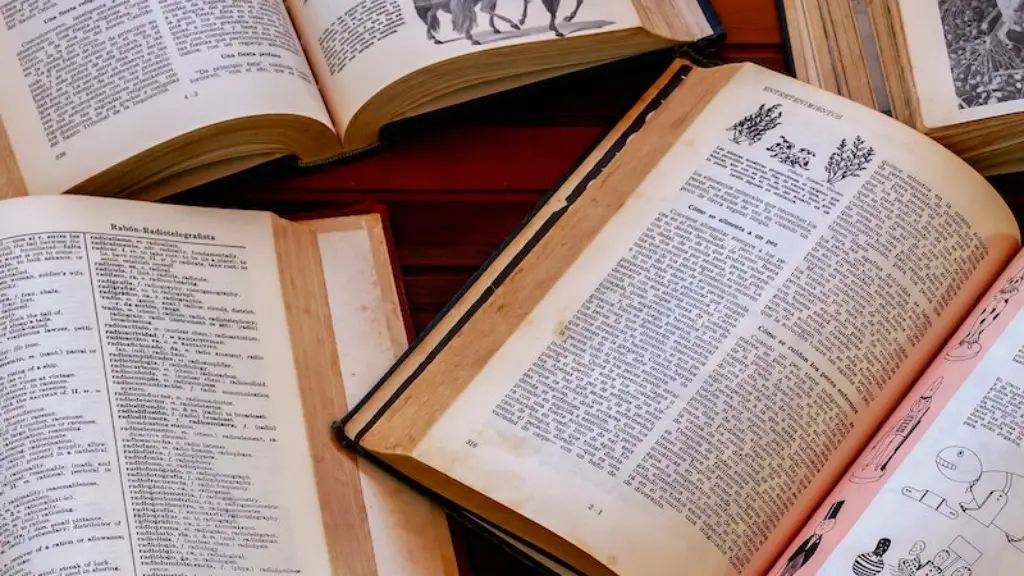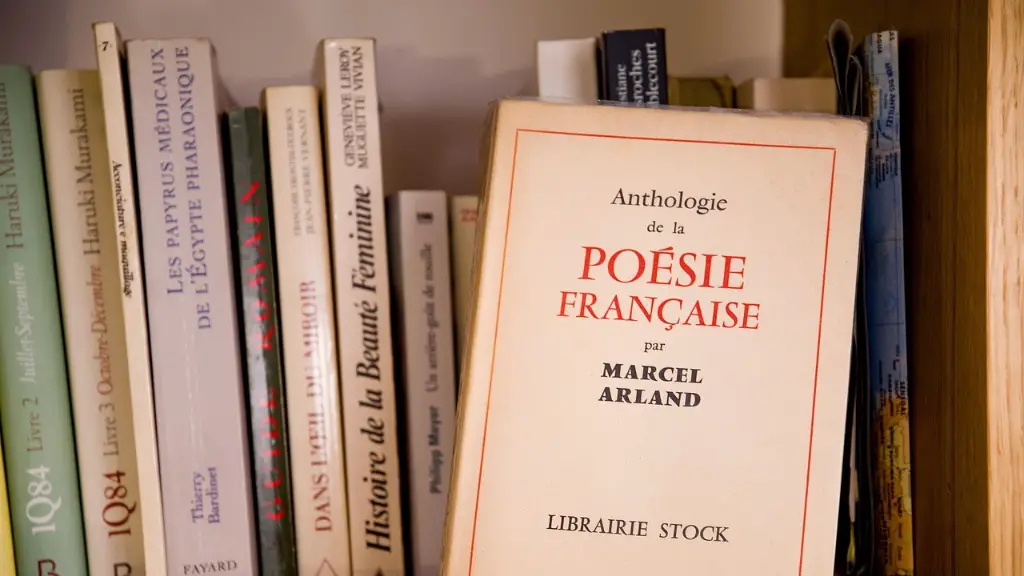Robert Frost is a renowned and celebrated 20th-century poet and playwright best known for his explorations of nature, morality, and love. Whether or not Frost is considered a modernist is a question of subjective interpretation, and there is no definitive answer. Many of Frost’s poems have been interpreted as celebrating traditional values and focusing on pastoral scenes, which would point away from modernist sentiment. But a closer look at some of Frost’s work reveals a decent portion of poems that express a modernist mindset.
The modernist literary movement flourished from approximately 1890 to 1940 and encompassed many influential authors such as Ezra Pound, T.S. Eliot, and James Joyce. Modernist literature typically features themes of experimentation and rebellion against traditional values and institutions while present-day sociocultural issues were often woven into its narratives.
Frost’s works hint at a modernist mindset that is apparent in his thoughts on the dissolution of rural American culture, the tension between human society and nature, and how a moral code is essential for good life. One of the most prominent examples of modernist themes in Frost is his poem “Mending Wall”, which has been called one of the greatest poems of the 20th century. In the poem, Frost depicts the annual springtime ritual of rebuilding a wall between him and his neighbor as a metaphor for his wariness of conformity and of being boxed in.
Subsequent works like “Death of the Hired Man” examine the effects of industrialization on rural communities, depicting characters and social classes as a commentary on America’s rapidly-changing economic and religious landscape. This can also be seen in “The Wood Pile” and “The Road Not Taken”, in which Frost confronts the stark reality that some decisions can never be reversed, however prudent or ill-advised they may be. His novel “A Way Out: A Play in One Act” also incorporates themes of revolution and individualism, in which a man buckles under the weight of his conservative family’s morals, only to sway another character away from a life not meant for him.
Finally, Frost’s works of metaphorical nature often reference a deep desire to reinvigorate traditional values while still allowing progress. In “To Earthward” and “Once by the Pacific”, Frost humanly describes the beauty of the natural world and how the individual can act upon it. Both works evoke a connection with nature and touch on the tension between the simplicity of the traditional and the complexity of the modern, which is a primary modernist theme.
Themes of Rebellion and Conformity in Robert Frost’s Work
Frost’s works contain many themes of rebellion and conformity, which are usually addressed in an ironic and questioning manner. His poem “A Question” shifts its perspective several times between a questioning voice and a people seeking an answer, perhaps reflecting how an individual should try to understand his place in a changing society. In “Directive”, Frost questions the changing landscape of his New England home and whether he can ever return to the way things were when he left.
Frost’s poems also provide unique perspectives on human existence, particularly in regards to human relationships and the choices and decisions we make. He emphasizes that interpersonal relationships are complex, and that one should mistrust appearances. In “Birches”, Frost uses the image of a bent tree to express the idea that, during times of crisis, it is important to have faith in yourself and in others to move forward.
Frost’s poems also contain a strong sense of the American self-image. In “Mending Wall”, the speaker in the poem laments the barrier the wall represents to human interactions, drawing on the idea of the American Frontier and its promise of freedom and progress. Additionally, in “The Road Not Taken”, Frost expresses his disappointment in the speed of American progress, noting how quickly old ideals and traditional values are left behind in the name of progress.
Finally, Frost addresses the idea of what it means to fit into a community. In “The Vanishing Red”, the farmer turns his back on his community, leaving his family and his way of life behind. This poem is a harsh reminder of the choices an individual has to make when faced with change. Similarly, “A Soldier” poses questions about the individual’s role in society, touching on the theme of mortality in an effort to find solace in one’s place in the world.
Robert Frost’s Poetic Style
Frost’s poetry style has been praised for its lyrical beauty and simple language. His poems are said to be accessible to readers of all ages, which has made him one of the most beloved poets of the past century. His characteristic style is often characterized as using everyday language to communicate deep and profound meanings.
Frost often uses understatement to communicate his larger points, and is adept at conveying human emotion in his prose. In “Acquainted with the Night”, the speaker’s loneliness and despair is only reinforced by the lack of verbal description of his emotions. Frost also uses personification and symbolism to address complicated ideas about the human condition, such as in “Stopping by Woods on a Snowy Evening”, where the horse’s “soul” echoes our own as it trudges through a cold and unforgiving night.
Frost’s use of elements such as alliteration, rhyme, and assonance further adds to the lyrical beauty of his verse. In “The Gift Outright” the use of these devices adds emphasis to the passage’s gradually intensifying tone. Frost often employs ironic devices to convey his message, such as in “After Apple Picking”, when the speaker’s dreamy state of mind is shattered as he is suddenly brought back to reality.
He is also known for his use of metaphor, which often mirrors his political or social views. In “Mending Wall”, the speaker views the wall between him and his neighbour as a metaphor for society’s ever-growing boundaries and restrictions, reflecting Frost’s mistrust of conformity.
Finally, Frost’s use of punctuation adds insight and depth to his poems. He often employs pauses in order to give the reader time to think about the implications communicated by his words. Moreover, Frost’s poems often contain ellipses, suggesting unfinished sentences and incomplete stories, hinting at the hidden meanings that are to be drawn from the reader.
Influence of Robert Frost’s Works
Frost’s works have had a lasting impact on American literature, and have been studied in classrooms all over the world. His work has been referenced in popular culture, and he has been posthumously recognized with numerous awards and honors.
Frost’s poem “The Road Not Taken” is perhaps his most famous, and is one of the most frequently-quoted poems in other works of literature and media. His other poems have also been frequently referenced in books, films, and songs. For example, the Academy Award-nominated animated film “Kung Fu Panda” begins with a reading of Frost’s “Stopping by Woods on a Snowy Evening”.
Frost’s works also continue to be studied in schools and universities all over the world, as they are thought-provoking and reminiscent of a familiar style of writing. Frost’s modernism can be seen in his thoughts on the tension between human society and nature, and his reliance on metaphor to express these thoughts. In addition, his works remain important due to the themes of human relationships, conformity and rebellion, and the American self-image he questions in his poems.
The Legacy of Robert Frost
Robert Frost is remembered as a deeply influential poet with a unique writing style that has become an integral part of American literature. His works continue to be widely read and studied, and his influence can be seen in many other works of literature, poetry, film and art.
Frost’s ever-relevant subject matter and thought-provoking themes, which address topics such as mortality, the consequences of human actions, and the interpersonal relationships between people, keep Frost’s work relevant and meaningful, even today. His work has been commended as some of the finest in the 20th century, and his legacy continues to live on in the literary world.
Although there is no definitive answer to the question of whether or not Robert Frost was a modernist, it can be said that he incorporated many of the themes and beliefs of modernism in his works. His unpredictable style and views on human behavior have made his work timeless and inspirational for the past century, and will continue to be for years to come.





